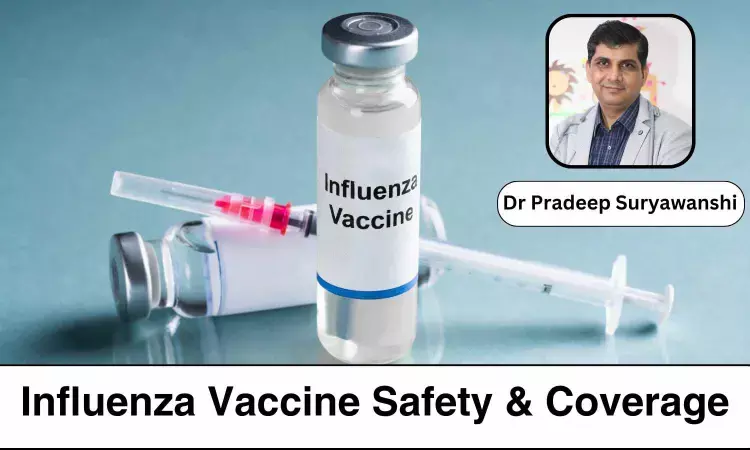- Home
- Medical news & Guidelines
- Anesthesiology
- Cardiology and CTVS
- Critical Care
- Dentistry
- Dermatology
- Diabetes and Endocrinology
- ENT
- Gastroenterology
- Medicine
- Nephrology
- Neurology
- Obstretics-Gynaecology
- Oncology
- Ophthalmology
- Orthopaedics
- Pediatrics-Neonatology
- Psychiatry
- Pulmonology
- Radiology
- Surgery
- Urology
- Laboratory Medicine
- Diet
- Nursing
- Paramedical
- Physiotherapy
- Health news
- Fact Check
- Bone Health Fact Check
- Brain Health Fact Check
- Cancer Related Fact Check
- Child Care Fact Check
- Dental and oral health fact check
- Diabetes and metabolic health fact check
- Diet and Nutrition Fact Check
- Eye and ENT Care Fact Check
- Fitness fact check
- Gut health fact check
- Heart health fact check
- Kidney health fact check
- Medical education fact check
- Men's health fact check
- Respiratory fact check
- Skin and hair care fact check
- Vaccine and Immunization fact check
- Women's health fact check
- AYUSH
- State News
- Andaman and Nicobar Islands
- Andhra Pradesh
- Arunachal Pradesh
- Assam
- Bihar
- Chandigarh
- Chattisgarh
- Dadra and Nagar Haveli
- Daman and Diu
- Delhi
- Goa
- Gujarat
- Haryana
- Himachal Pradesh
- Jammu & Kashmir
- Jharkhand
- Karnataka
- Kerala
- Ladakh
- Lakshadweep
- Madhya Pradesh
- Maharashtra
- Manipur
- Meghalaya
- Mizoram
- Nagaland
- Odisha
- Puducherry
- Punjab
- Rajasthan
- Sikkim
- Tamil Nadu
- Telangana
- Tripura
- Uttar Pradesh
- Uttrakhand
- West Bengal
- Medical Education
- Industry
Influenza Vaccination: Addressing Safety Concerns and Maximizing Coverage - Dr Pradeep Suryawanshi

Influenza, also known as the flu, remains a significant public health challenge not only in India, but globally also, contributing to severe illnesses particularly among high-risk populations. The disease can be devastating, hitting hardest among the most vulnerable populations, including children which are under 5 years, the elderly (over 60 years), and individuals with chronic health conditions.
To mitigate the impact of the flu, it is crucial to ensure widespread influenza vaccination coverage within these high-risk groups. The influenza vaccine is the primary defence against the virus, but vaccination rates often fall short of targets set by health authorities. Concerns about safety and efficacy are common barriers to higher vaccination rates.
Targeted Vaccination Strategy
For children, the recommended vaccination schedule starts early. Infants as young as six months can receive their first dose of the influenza vaccine, followed by a second dose at seven months.
From the second year onwards, an annual vaccination is recommended, ideally scheduled before the onset of the peak flu season—around April to June in India. This timing helps build immunity before the virus spreads widely.
Safety of Influenza Vaccines
Safety concerns regarding influenza vaccines are minimal. Common side effects include mild fever, occurring in about one in a thousand cases, and typical reactions at the injection site such as pain or redness—similar to other routine vaccinations. These minor issues should not deter vaccinations, as the benefits significantly outweigh the risks.
Enhancing Vaccine Uptake
Increasing the coverage of influenza vaccination requires robust public awareness campaigns. Despite general familiarity with the importance of vaccinations, specific awareness about the influenza vaccine is lacking.
Effective communication strategies could include utilizing media channels like television, radio, and newspapers to educate the public about the risks of influenza and the critical role of vaccination in preventing severe outcomes.
During the 2009 H1N1 pandemic, the swift spread of the virus highlighted the gaps in community preparedness and vaccine awareness. Learning from past experiences, it is vital to reinforce the message that while influenza can be a severe illness, vaccination can reduce the severity and spread of the disease, thus preventing high morbidity and mortality rates.
Influenza remains a significant threat, but with effective vaccination strategies and comprehensive public health campaigns, it is possible to protect the most vulnerable and reduce the disease's impact.
Ensuring broad vaccine coverage before the flu season and addressing public concerns about vaccine safety are essential steps in combating influenza in India. By fostering community awareness and trust in vaccination programs, we can significantly diminish the risk and severity of influenza outbreaks.
Dr Pradeep Suryawanshi (MBBS (Gold Medal), MD (Ped) DCH (Syndeny), FNNF Fellowship in Neonatal Perinatal Medicine (Australia) FRCPCH (UK)) is the Director (Neonatologist & Paediatrician) at Sahyadri Super Speciality Hospital, Nagar Road, Pune having overall experience of more than 15 years in the field of Neonatology. He is the first person in India to commence point of care Neonatal Ultrasound and Neonatal Functional Echocardiography. His areas of expertise include Neonatal Ultrasound and Neonatal Echocardiography, etc. He has received numerous awards and recognitions in the form of the Golden Award for Newborn Resuscitation (2014) and the Diamond award for Newborn Resuscitation (2015). Dr Pradeep also heads the Maharashtra Neonatology Forum as its esteemed secretary.


